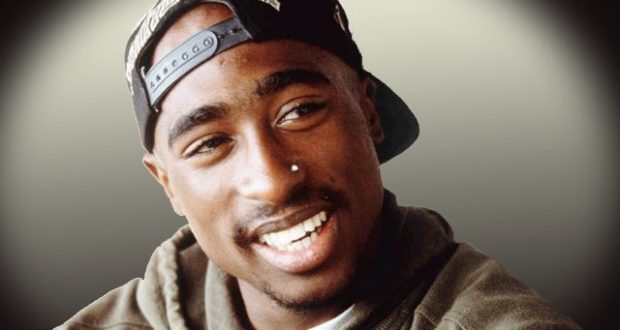by Nigel Webber

“My journalistic range is a catalyst for change” – Black Thought
Music is meant to inspire. The right music and lyrics can deliver a message powerfully in a few minutes. In hip-hop, vocals are the focus, giving rappers an unique opportunity to speak their minds in their songs. Rappers have seized the opportunity. Their lyrics can often be a front line perspective of harsher elements of society. In popular music, lyrics become more vapid and have less meaning. Through the years there have been songs with a wider audience appeal that have had such a powerful message that they are still remembered. Music can be a snapshot, a brief look at the zeitgeist and a window into understanding that era.
2019 will mark the 40th year of hip-hop and rap music as a recorded form of music. “Rapper’s Delight,” rap’s first hit in 1979, starts with gibberish lyrics and for the next few years, rap was dance music for the club. That all changed in 1982 when Grandmaster Flash and the Furious Five released “The Message.” The song is mostly the work of rapper Grandmaster Melle Mel, who tells the story of a poverty stricken neighbourhood. The character Melle Mel creates is witness to the crime, drugs and lack of opportunity in the inner city neighbourhood he lives in. The song has several classic lines but the chilling chorus, delivered in a stop-start manner, “Don’t push me cause I’m close to the edge/ I’m trying not to lose my head,” are among the most famous lyrics in the genre. After this song came out, President Ronald Reagan visited the South Bronx and said it looked worse than London after World War II. Reagan’s policies, of course, help exacerbate a bad situation into a much worse one.
Coming out of such an environment it is no surprise that the character in “The Message” is “close to the edge.” Conscious rap had its heyday in the late 1980s and early 1990s. KRS-One led the “Stop the Violence” movement that put out the influential posse track “Self Destruction” about violence in the black community. The West Coast All Stars gave a California flavour to the same topic in “We’re All in the Same Gang.” Originally from the East Coast but living in the Bay Area, Tupac Shakur was able to bridge the gap with “Keep Ya Head Up.” Released in 1993 before Tupac had become a super star, “Keep Ya Head Up” is dedicated to Latasha Harlins, a fifteen year old who was shot and killed in 1991 for allegedly trying to steal a bottle of juice. Tupac turns the tragedy into an ode for black women everywhere, acknowledging the oft-forgotten community with lines like, “Tupac cares if don’t nobody else care.” The Five Stairsteps’ sample in the chorus allows the song a hopefulness in the lines “ooh child, things are going to get easier.”
The lyrics that do the most to convey Pac’s message are the last half of the first verse. Tupac’s mother Afeni Shakur, a former member of the Black Panthers, struggled with drug addiction and Tupac’s lyrics declare the significance of women in his life and in the world. Across several lines Pac poses multiple questions, “I wonder why we take from our women/ why we rape our women/ do we hate our women?” The halting delivery Tupac uses in this section, pausing before each instance of the word ‘Women’, drives home the importance of women for Pac while bringing back memories of Melle Mel’s delivery in “The Message”. After asking those questions rhetorically, Pac answers them in turn. He makes it clear that “it’s time to kill for our women/ time to heal our women/ be real to our women.”
Pac finishes his first verse in “Keep Ya Head Up” with a shift to men, telling them they have no right to dictate to women when they can have children, “since a man can’t make one/ he has no right to tell a woman when and where to create one.” The prescience of this line is profound considering the the restrictions on women’s reproductive health in recent year in the United States. In a plea to his fellow men, Pac cajoles them, “so will the real men get up?” The song came near the end of the conscious era and Pac would become one of the faces of the new era of gangster rap during the mid to late 1990s. Famously Tupac Shakur would be shot and killed in 1996, a case that has never been solved.
In last 25 years there has been an inexorable hip-hopification of popular music, culminating in the genre’s ascendance to mass conscious. This has fortified the strata between mainstream and underground rap. While songs like “The Message” and “Keep Ya Head Up” were popular and game changing within hip-hop, their respective release dates did not allow them the opportunity to reach a mainstream audience. In 2017, a Grammy nominee for Song of the Year changed hip-hop message songs forever by bringing it to the world. In “1-800-273-8255,” Logic wrote an incredibly powerful song about suicide and mental health struggles. The title of the song is the actual number for the American National Suicide Prevention Lifeline. The centre had a spike in calls as Logic took the song mainstream, even performing on “Ellen”.
The verses form a conversation between a caller to the hotline, who is initially suicidal, and the hotline worker who is able to convince the caller to choose life. Logic has been very open about his own struggles with anxiety and depression in his music and in interviews. “1-800” is a vulnerable song, it shows sensitivity, an emotion that is often shunned in rap music in exchange for the hardened street persona. Logic is a pioneer in this respect and more than any other mainstream artist today, he is able to bare his soul in an honest and passionate way. A song like “1-800” doesn’t come around very often and there is no track in recent memory that is comparable.
The reach of a particular song or artist can affect whether it becomes an inspirational song for the masses. The spark for this article came from the highly inspirational songs, “Clear Blue Skies” by Juggaknots and “Renee” by Lost Boyz. Both tracks are undeniable classics in underground ‘90s hip-hop but they fail to reach the general level of awareness of classics like “The Message” and “Keep Ya Head Up”. Today, in hip-hop, there are lesser known artists like Big KRIT and Mozzy who consistently put out powerful and inspiring music. The recent shift means popular hip- hop equals popular music, making it is less likely that such powerful messages will filter into the mainstream. Logic’s success with “1-800-273-8255” should help to counter that argument but it is currently the exception to the rule.

